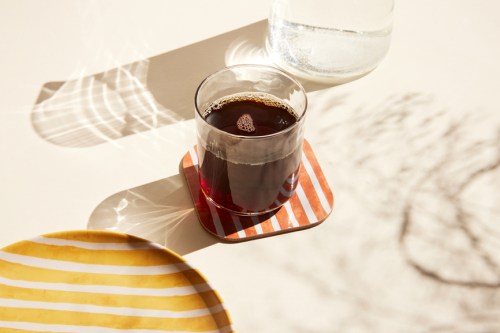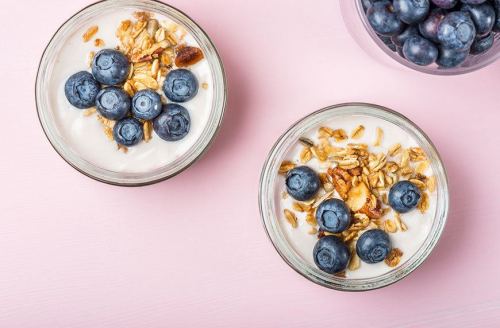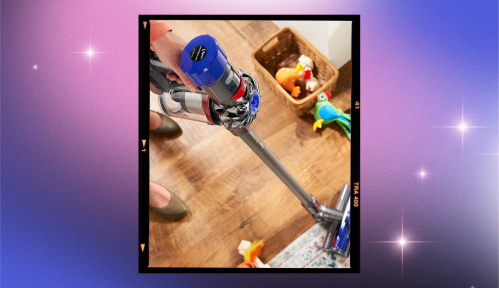For those who are sensitive to caffeine, it can feel like just a whiff of coffee—let alone a couple of cappuccinos—can send you spiraling into a jittery, anxious, and/or headache-y episode. And as much as we love a soul-soothing cup of joe first thing in the morning, a major jolt of energy isn’t always what we want…or need.
Experts in This Article
registered dietitian
So next time you find yourself settled in at the coffee shop for the long haul, clacking away on your keyboard and deciding what to order up next, here’s something helpful to note: Tea, according to experts, is less likely to induce jitters than coffee.
“Caffeine from tea is probably not going to make you as jittery as coffee for a few key reasons,” says Christina Manian, RDN, a Boulder-based registered dietitian and sustainable food systems professional. “One primary reason is an essential amino acid that helps prevent that dreaded caffeine crash midday.”
Anxious to learn more? Let’s get into it.
Why caffeine from tea tends to make you feel less jittery than coffee
If you are someone who is sensitive to the effects of caffeine and is prone to feeling shakes or anxiety after one (or one-too-many) cold brews, Manian suggests swapping your daily coffee for a cup of tea instead. “Tea tends to make us feel less jittery—not only because it contains less caffeine, but because it’s also a great source of the amino acid L-theanine. L-theanine acts as a buffer during the digestion process, which helps prevent jitters and the crash that is often associated with coffee. It’s also an effective calming agent,” Manian says. Mind is officially blown.
Teas loaded with L-theanine are considered “true teas” and include white, green, oolong, and black varieties. “L-theanine is a naturally occurring amino acid found in all ‘true’ teas. This is what sets them apart from herbal teas, which do not contain L-theanine,” Peter Goggi, the president of the Tea Association of the USA, Inc, previously shared with Well+Good. These types of tea have been shown to help improve attention, cognitive functioning, and even help reduce the effects of burnout and stress.
“Tea tends to make us feel less jittery—not only because it contains less caffeine, but because it’s also a great source of the amino acid L-theanine.”
What’s more, teas also contain three other critical anti-inflammatory and antioxidant compounds that have immune-boosting properties. “As an added bonus, tea is full of plant compounds like EGCG (epigallocatechin gallate), kaempferol, and quercetin—all of which are potent anti-inflammatory agents that help to boost our immune systems,” Manian says.
What can you do if you find yourself feeling overly caffeinated?
If you’re past the point of no return and have succumbed to the caffeine jitters, Manian says there’s no need to panic.
“If you are feeling caffeine jitters, try taking a walk or doing some form of movement to help cycle that energy through your body, as opposed to gluing yourself to your desk chair,” Manian says. Flushing your body with fluid and simply taking a slow, deep breath can also work wonders. “Drinking lots of water and deep breathing can also be really helpful when you’re being overtaken by the jitters.”
Ultimately, however, simply drinking less caffeine-filled drinks—or trying nutritionist-approved alternatives with functional benefits—will always help. “The most effective plan of attack is to start consuming less caffeine in general. And if you want, you can also try out alternatives like the mushroom and adaptogen ‘coffees’ we’re seeing on the market now. Not only do they provide a low- or no-caffeine boost, but they also provide you with all the healing benefits of mushrooms and adaptogens, including boosted brain health, improved immune function, and reduced inflammation,” Manian explains.
But if your love for caffeinated drinks surpasses the temporary discomfort experienced by drinking too much in one day, Manian says you don’t necessarily need to go cold turkey. Like most things in life, it’s all about moderation. “Even swapping one of your cups of coffee or tea for these alternatives can be a great choice,” she says. *Phew.*
This herbal tea will help calm you for a good night’s sleep:
Sign Up for Our Daily Newsletter
Get all the latest in wellness, trends, food, fitness, beauty, and more delivered right to your inbox.
Got it, you've been added to our email list.










